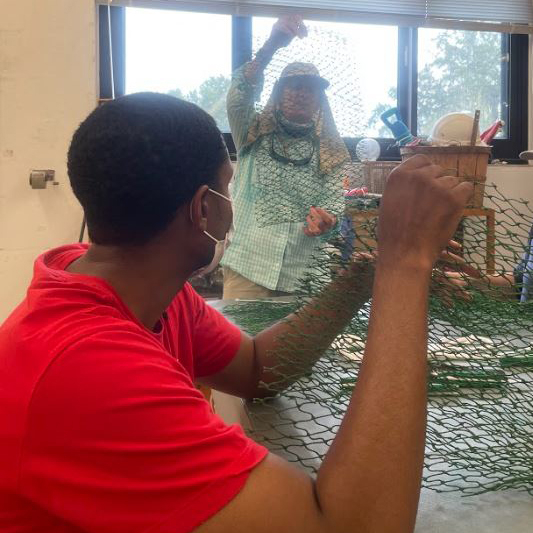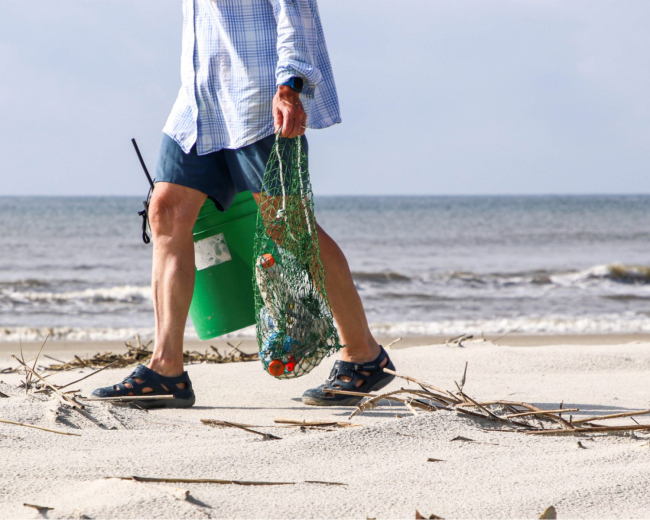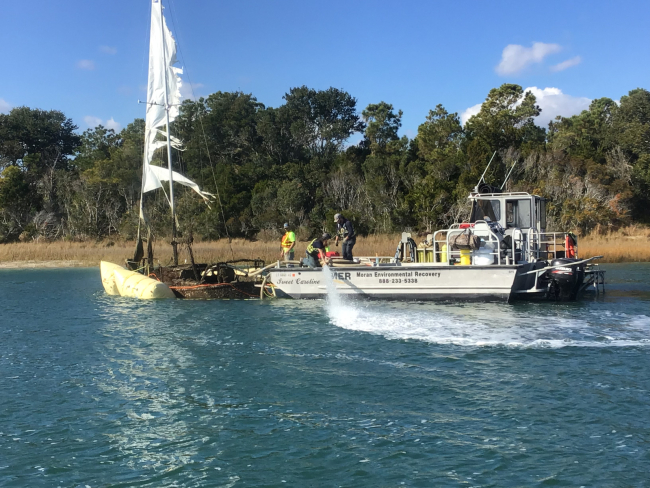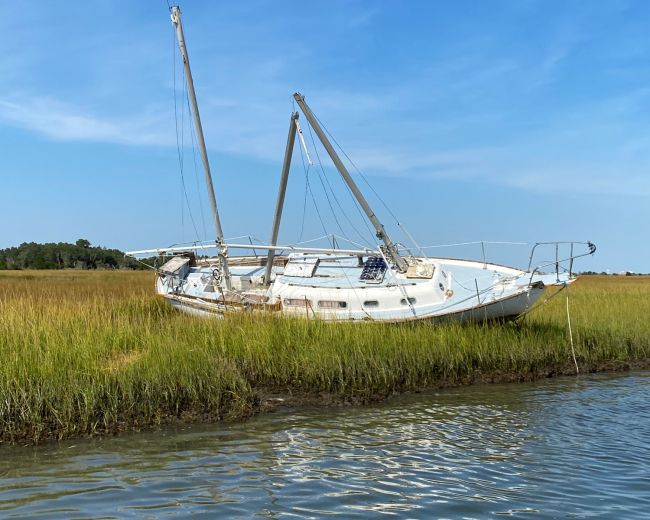Fall has finally arrived here in the Southeast, bringing cooler temperatures after a long, brutally hot summer. Gone (for now) are cleanup days of sweat and sunblock-drenched clothes and bags that stick to your skin. This means tackling marine debris just became a little more enjoyable and a lot less sweaty! While you’re out enjoying these beautiful, crisp days, you may see our partners in Georgia, South Carolina, and North Carolina out and about taking on the marine debris issue head-on. We’re excited to highlight some of their marine debris prevention and removal efforts.
The University of Georgia Marine Extension and Georgia Sea Grant, with support from NOAA Sea Grant and NOAA Marine Debris Program, developed a creative way to clean up the Georgia coast and support local commercial shrimpers whose income was impacted by the pandemic. Through Trawl to Trash, commercial shrimpers are recruited to make stow bags out of retired shrimp net material. Those bags are used by recreational boaters and beachgoers to collect marine debris in local waterways and on beaches to prevent it from entering coastal environments. The Trash to Trawl project generated over 1,600 trawl bags and inspired South Carolina Sea Grant to join in these efforts.
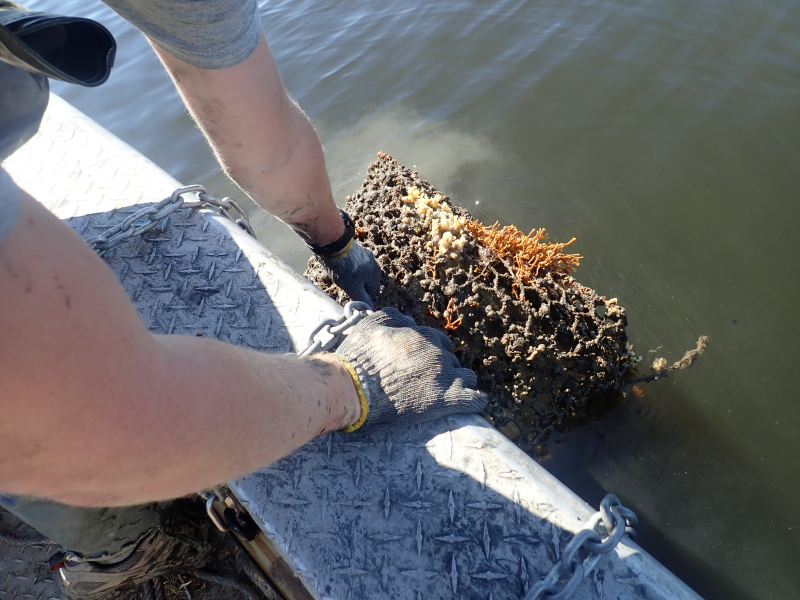
A team from the South Carolina Department of Natural Resources is mapping important coastal estuaries to identify and remove derelict crab traps. The team is using uncrewed aerial systems to spot traps at or near the water's surface and side-imaging sonar to locate derelict traps deeper down. A portion of the traps will be removed and used to build new oyster reef habitats to reduce erosion and habitat loss around the Bears Bluff National Fish Hatchery near Charleston, South Carolina. With these surveys and an updated derelict trap reporting public tool on their website, the Department hopes to better understand how many derelict traps are in coastal waters and continue to remove and repurpose traps in the future.
In an effort to address the devastation caused by Hurricane Florence along the North Carolina coast, the North Carolina Coastal Federation has removed over 50 abandoned and derelict vessels located in important coastal waters and on public lands in the central and southeastern parts of the state. Additionally, over 400 tons of hurricane debris was removed by crews of commercial fishermen hired to help clean sensitive marsh habitats. This project was made possible by support from the Hurricane Response Marine Debris Removal Fund, a partnership between the NOAA Marine Debris Program and the National Fish and Wildlife Foundation.
We are proud of the important prevention and removal projects our partners are leading! Keep an eye out on our blog and social media to hear more about and from our partners doing this important work. Their efforts have been instrumental in reducing marine debris, protecting marine wildlife, and restoring critical coastal habitats in the Southeast.

